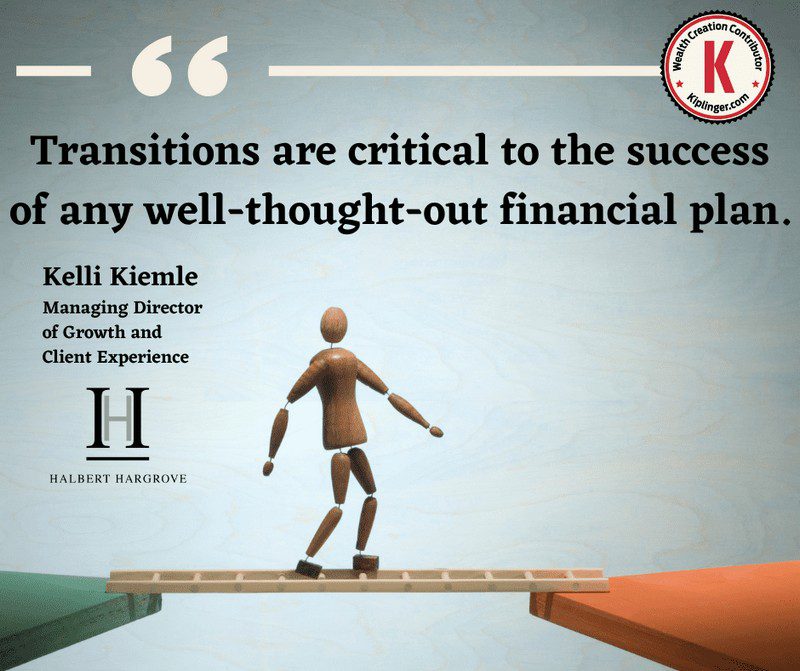By Kelli Kiemle, AIF®, Managing Director of Growth and Client Experience as Featured in Kiplinger
We all have the same anxiety: Will I be OK? Regularly adjusting your long-term financial plans can help calm your fears.
One thing I’ve learned in my 15 years in the investment industry that’s worth its weight in gold: Transitions are critical to the success of any well-thought-out financial plan.
If the timing and execution don’t work, then even the best of plans (on paper!
) could be critically altered — and you may be left reassessing your plan or reevaluating your goals.
In my years of onboarding new clients, I regularly heard questions like “Do I have enough?” and “Will I be OK once I stop working?” These fears should be easily quelled if you have a long-term plan in place that is regularly recalibrated based on the financial phase you’re in.
Traditional measurements use age to tell you where you are on your journey to retirement, but by seeing your life in “financial phases,” you can more clearly define and achieve your life goals. Once you understand which financial phase you are in, you can work to ensure a smooth transition between them. As you work through transitioning between each phase, here are four key questions to ask yourself:
1. What does my current financial picture look like?
As you consider making any transition, it’s imperative to know where you’re coming from. A review of your finances, including your current spending patterns and financial commitments, is in order. Importantly, you should be clear about the priorities that typically, and most meaningfully, can impact your financial life in the phase that you’re looking to transition to.
Portfolios have had a roller coaster year, so if you work with an adviser, it’s important to touch base if you haven’t already to ensure you know if the markets have had any impact on your financial expectations. Or if it’s been a while since you’ve reviewed your spending habits, you can use budgeting apps like Mint(opens in new tab) to help you accurately reconnect with your spending in the last year or two.
What’s important is that you accurately know where you financially stand today and not where you stood the last time you reviewed your financial picture.
2. Do I still have the same goals?
Now is a good time to really evaluate the goals you originally set out to accomplish when you first created your plan. A lot of times, life happens, and things that seemed essential are no longer needed, or just aren’t a priority for you. Maybe you thought you would need to pay for a wedding in the future, but now you know your child is not getting married or is financially stable enough to pay for their own wedding.


